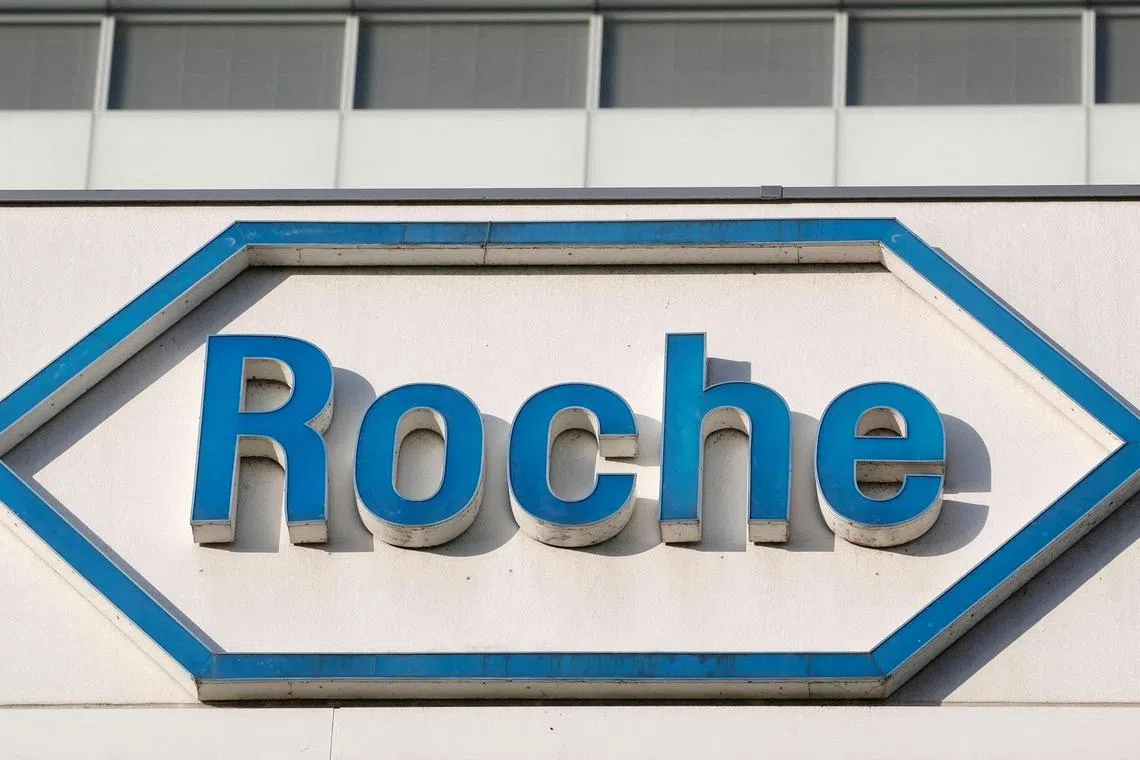Roche shutters most trials of Alzheimer’s drug after disappointing results
Sign up now: Get ST's newsletters delivered to your inbox

Roche presented full results of the trials in San Francisco after announcing in November that the drug failed in the two trials.
PHOTO: REUTERS
Follow topic:
CHICAGO – Swiss drugmaker Roche is closing down most clinical trials of its experimental Alzheimer’s drug gantenerumab after it failed to slow the advance of the mind-robbing disease in a pair of large, late-stage studies, the company said on Wednesday.
Roche presented full results of twin trials at an Alzheimer’s meeting in San Francisco after announcing in November that the drug failed in the two trials.
Unlike Eisai’s and Biogen’s lecanemab, which appears to be on track for US regulatory approval after presenting successful trial results on Tuesday, Roche’s drug did not show a statistically significant benefit in patients with mild cognitive impairment and early Alzheimer’s disease.
Both drugs are designed to remove forms of the protein beta amyloid from the brain, sticky plaques believed to play a major role in the disease.
While Eisai’s infusion succeeded in slowing the advance of Alzheimer’s by 27 per cent after 18 months,
A key difference may have been in the drug’s ability to clear amyloid from the brain.
In a presentation on Wednesday, researchers said gantenerumab, which is given by injection, only achieved amyloid clearance in 28 per cent of patients in the Graduate I trial and 25 per cent in Graduate II after two years, half of what the company expected to see.
Lecanemab, by contrast, cleared amyloid in 68 per cent of those in the study after 18 months.
Dr Howard Fillit, chief science officer at the Alzheimer’s Drug Discovery Foundation, said there are a number of reasons why Roche’s drug may have failed, including differences in chemistry, dosing and the way it is administered via injection versus infusion.
But the fact that the drug failed to remove amyloid deposits in the brain as expected clearly played a role, he added.
The field of Alzheimer’s research is littered with failure and disappointment, including for several drugs in the same class, and previous efforts to prove gantenerumab’s worth.
In 2014, the drug failed to show a benefit when given at a lower dose among patients with mild Alzheimer’s, and it failed again in 2020 in a Washington University School of Medicine trial of patients with an inherited form of Alzheimer’s.
“Obviously, within the class, some drugs are working and some aren’t,” Fillet said. REUTERS

